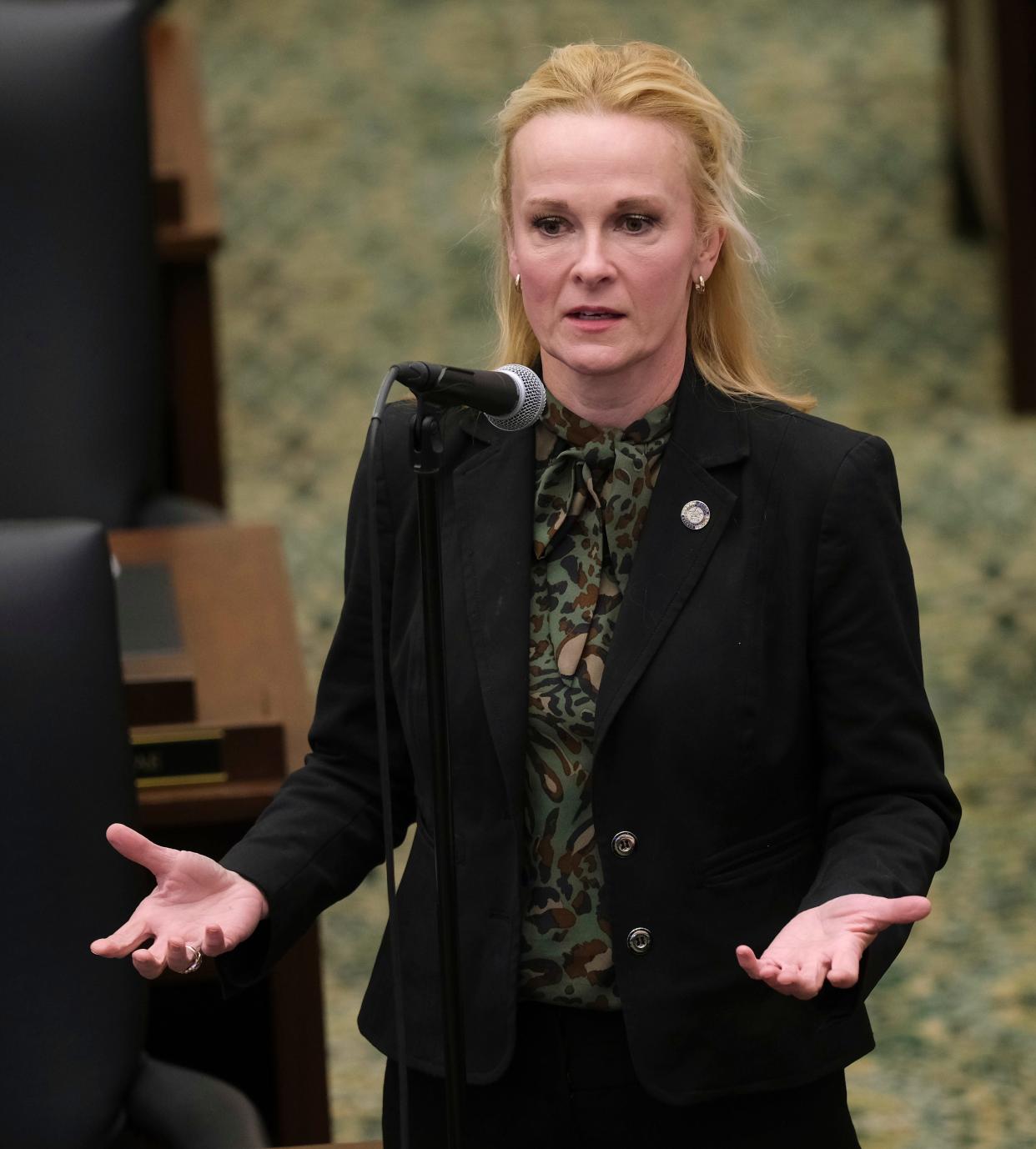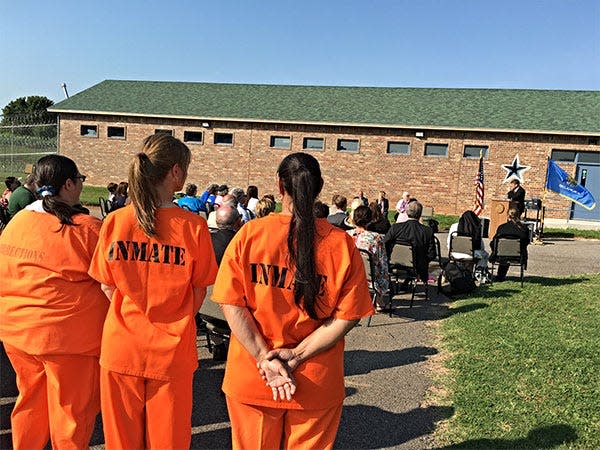She killed her abuser. An Oklahoma House committee passed a bill that could set her free.

In 1998, April Wilkens shot and killed her fiancé, who had handcuffed and raped her in a Tulsa home. A jury convicted her of first-degree murder, and Wilkens was sentenced to life in an Oklahoma prison.
“I knew that I was going to die. I just knew I was going to die,” Wilkens said last year about being abused and why she shot her fiancé with his own gun.
Wilkens has been denied parole four times, but she has never been able to use the evidence of her domestic abuse in her appeal for early release.
But House Bill 1639, which was unanimously advanced by a state House committee on Wednesday, could give Wilkens and other incarcerated women like her a chance at freedom.
"If the bill passes and is signed into law ... it's going to make a difference in the lives of so many women and so many families in Oklahoma. This is a huge step forward in addressing a serious issue in our state," said Leslie Briggs, the legal director for the Oklahoma Appleseed Center for Law and Justice, an organization that has ben advocating for the bill.
More:More Oklahomans are being released from prison. Now what?

There are multiple cases of women in Oklahoma charged with murder, but who claim they killed an abuser because they feared for their life, Briggs said.
Evidence of domestic violence can be difficult to use in applying for early release, but HB 1639 would give women the chance to present those details to a court.
The bill also would allow a woman convicted of a crime to enter evidence of their abuse at a sentencing mitigation hearing.
The bill’s title was struck, meaning the exact language is still being crafted as it advances past this week's deadline to be heard by a committee.
Rep. Toni Hasenbeck, the bill's author, told the House judiciary committee on Wednesday she was still hoping to speak with various representatives of the legal system to finalize the exact language.
"The next thing we need to do is all of us need to get in the same room and have a big talk and find the sweet spot," said Hasenbeck, R-Elgin.
Oklahoma Appleseed has been advocating for the bill since last year, and the Tulsa-based nonprofit recently produced a seven-episode podcast series about Wilkens.
The podcast, which has been downloaded more than 27,000 times, tells the story of Wilkens and why she felt killing her fiancé was necessary.
Wilkens also advocated for the bill through a guest column she recently wrote for The Oklahoman.
“The odds are certainly stacked against women in Oklahoma,” Wilkens wrote. “Mothers, daughters, sisters and even grandmothers like me are far more likely to be abused and end up behind bars in Oklahoma than in nearly any other state.”
Oklahoma has some of the highest rates of domestic violence and female incarceration in the nation, two issues that often intertwine, said Colleen McCarty, the executive director of Oklahoma Appleseed.
"There are these crimes where a person might be considered violent, but all the facts aren't really taken into account," McCarty told The Oklahoman. "We have to start talking about domestic violence and its impact on these women."
Other states have adopted similar policies, including New York where judges can now shorten prison sentences for those who can prove a connection between their crime and domestic violence. A similar bill also has been proposed in Oregon.
McCarty said HB 1639 is another way Oklahoma can continue to reform its criminal justice system, which incarcerates more people than most states.
"It really is the next step we need to take in Oklahoma," McCarty said.
This article originally appeared on Oklahoman: Oklahoma bill could help imprisoned domestic violence victims

